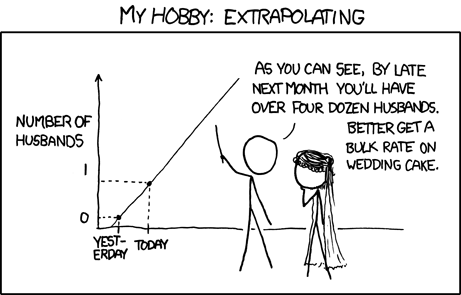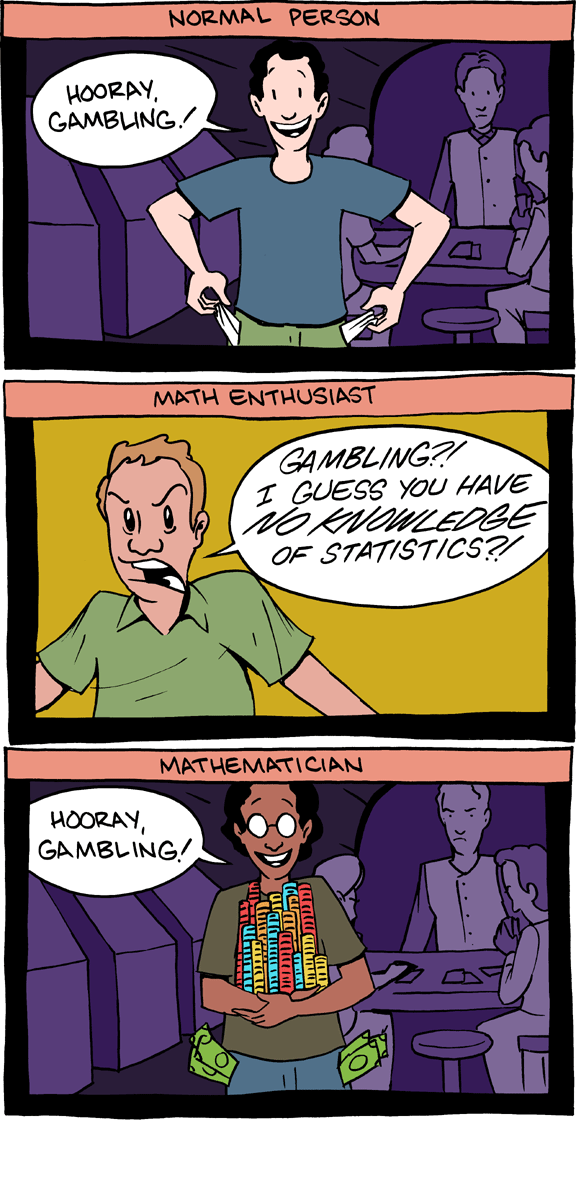Official TSR Mathematical Society
Scroll to see replies
Original post by ben-smith
Find all integer solutions of .
Spoiler
Original post by SsEe
Spoiler
PRSOM
Is that really a quotable result?

Original post by ben-smith
PRSOM
Is that really a quotable result?
Is that really a quotable result?

In the case of n = 3 (and some other ones) it's elementary to prove. (Not easy though IIRC)
Original post by SimonM
In the case of n = 3 (and some other ones) it's elementary to prove. (Not easy though IIRC)
I see.
I'd just like to give the source of the problems I've posted recently: here
It seemed a shame not to share them.
Anyone fancy doing today's?
LHS is Nesbitt.
RHS follows by writing a = x+y, b = y+z, c = z+x which we can always do for the sides of a triangle. (Think incircle)
RHS follows by writing a = x+y, b = y+z, c = z+x which we can always do for the sides of a triangle. (Think incircle)
A sobering collection: Jewish Problems.
Abstract:
Abstract:
This is a special collection of problems that were given to select applicants during oral entrance exams to the math department of Moscow State University. These problems were designed to prevent Jews and other undesirables from getting a passing grade. Among problems that were used by the department to blackball unwanted candidate students, these problems are distinguished by having a simple solution that is difficult to find. Using problems with a simple solution protected the administration from extra complaints and appeals. This collection therefore has mathematical as well as historical value.
(edited 12 years ago)
Copy-pasted from reddit, but this is ridiculously cool:
http://imgur.com/c480O
http://imgur.com/c480O
Original post by tommm
reminds me of this

I joined 
maths is cool

maths is cool

Check out this YouTube channel.
It is well known that the harmonic series, 1/1 + 1/2 + 1/3 + 1/4 + ... , diverges. Consider a depleted harmonic series; see below; which contains only terms whose denominator does not contain a 9. (In decimal representation.) Does this series diverge or converge?
S = 1/1 + 1/2 + ... + 1/8 + 1/10 + ... + 1/18 + 1/20 + ... + 1/88 + 1/100 + 1/101 + ...
Standard analysis question?
Interesting none the less.
S = 1/1 + 1/2 + ... + 1/8 + 1/10 + ... + 1/18 + 1/20 + ... + 1/88 + 1/100 + 1/101 + ...
Standard analysis question?
Interesting none the less.
I have to respect those who do mathematics. Although maths seems very interesting in theoritical approach, maths is just too dificult and confusing to me. Bravo if you are a mathematician!
Original post by ben-smith
It is well known that the harmonic series, 1/1 + 1/2 + 1/3 + 1/4 + ... , diverges. Consider a depleted harmonic series; see below; which contains only terms whose denominator does not contain a 9. (In decimal representation.) Does this series diverge or converge?
S = 1/1 + 1/2 + ... + 1/8 + 1/10 + ... + 1/18 + 1/20 + ... + 1/88 + 1/100 + 1/101 + ...
Standard analysis question?
Interesting none the less.
S = 1/1 + 1/2 + ... + 1/8 + 1/10 + ... + 1/18 + 1/20 + ... + 1/88 + 1/100 + 1/101 + ...
Standard analysis question?
Interesting none the less.
Converges.
1st year analysis problem sheet so I guess standard. IIRC counting digits and bounding the sum is the entire proof.
At the same time we had an interesting prob question on the R-Z function.
1/zeta(s) = product(1 - (1/p^s)) product over p prime.
Suggestion - consider Y the probability a number x is divisible by p. Show Y and p prime are independent (also complements). Look at the intersection of primes not dividing X.
Original post by ben-smith
It is well known that the harmonic series, 1/1 + 1/2 + 1/3 + 1/4 + ... , diverges. Consider a depleted harmonic series; see below; which contains only terms whose denominator does not contain a 9. (In decimal representation.) Does this series diverge or converge?
S = 1/1 + 1/2 + ... + 1/8 + 1/10 + ... + 1/18 + 1/20 + ... + 1/88 + 1/100 + 1/101 + ...
Standard analysis question?
Interesting none the less.
S = 1/1 + 1/2 + ... + 1/8 + 1/10 + ... + 1/18 + 1/20 + ... + 1/88 + 1/100 + 1/101 + ...
Standard analysis question?
Interesting none the less.
Converges
Spoiler
Original post by Oh I Really Don't Care
Converges.
1st year analysis problem sheet so I guess standard. IIRC counting digits and bounding the sum is the entire proof.
At the same time we had an interesting prob question on the R-Z function.
1/zeta(s) = product(1 - (1/p^s)) product over p prime.
Suggestion - consider Y the probability a number x is divisible by p. Show Y and p prime are independent (also complements). Look at the intersection of primes not dividing X.
1st year analysis problem sheet so I guess standard. IIRC counting digits and bounding the sum is the entire proof.
At the same time we had an interesting prob question on the R-Z function.
1/zeta(s) = product(1 - (1/p^s)) product over p prime.
Suggestion - consider Y the probability a number x is divisible by p. Show Y and p prime are independent (also complements). Look at the intersection of primes not dividing X.
I'm failing to see an actual question. Solve for p or s? prove it?
Original post by ben-smith
I'm failing to see an actual question. Solve for p or s? prove it?
prove 1/zeta(s) = product over p prime (1 - 1/p^s) via probability.
The lecturer teaches the 1st years in 3 weeks so he has not put the question sheet up. It would have been worded better (and I've had to do this question roughly 10 times in the past year so I'm not doing it again in order to reword the question).
Original post by Oh I Really Don't Care
prove 1/zeta(s) = product over p prime (1 - 1/p^s) via probability.
The lecturer teaches the 1st years in 3 weeks so he has not put the question sheet up. It would have been worded better (and I've had to do this question roughly 10 times in the past year so I'm not doing it again in order to reword the question).
The lecturer teaches the 1st years in 3 weeks so he has not put the question sheet up. It would have been worded better (and I've had to do this question roughly 10 times in the past year so I'm not doing it again in order to reword the question).
hmmmmm, interesting. Just proving it would be relatively straightforward thanks to good old Euler.
Original post by Oh I Really Don't Care
prove 1/zeta(s) = product over p prime (1 - 1/p^s) via probability.
The lecturer teaches the 1st years in 3 weeks so he has not put the question sheet up. It would have been worded better (and I've had to do this question roughly 10 times in the past year so I'm not doing it again in order to reword the question).
The lecturer teaches the 1st years in 3 weeks so he has not put the question sheet up. It would have been worded better (and I've had to do this question roughly 10 times in the past year so I'm not doing it again in order to reword the question).
Here's the sheet from last year. I found it in my downloads folder since I did it last year. The question is at the very end.

Easy though I think a nice variation of a common problem in Olympiads.
For a prime prove or disprove (n-1)^p + 1 is divisible by p for all n.
For a prime prove or disprove (n-1)^p + 1 is divisible by p for all n.
Quick Reply
Related discussions
- undergraduate to postgraduate
- UEA vs University of York for Actuarial Science
- Official Heriot-Watt University 2023 Applicant Thread
- Anyone going to University of Essex ?
- Ask a YSJ Student Ambassador 2024!
- NCS (newham collegiate sixth form) application with IGCSE
- A level choices help needed
- Question for people taking Discrete Maths at Warwick
- Official Keele University 2024 Applicants thread
- Applying to 2+ courses at the same University.
- Applying to 2 courses
- Online MSc Data Science
- The Official vBCms Comments Society
- Hello Madmoselles.
- Queerness & University
- University Application - Cambridge, Imperial, UCL, Manchester, Eidngurgh
- TSR Community Awards 2023 Winners
- October start
- cambridge biological natural sciences
- Academic vs Social Unis
Latest
Trending
Last reply 2 days ago
Did Cambridge maths students find maths and further maths a level very easy?Last reply 2 weeks ago
Edexcel A Level Mathematics Paper 2 unofficial mark scheme correct me if wrongMaths
71
Trending
Last reply 2 days ago
Did Cambridge maths students find maths and further maths a level very easy?Last reply 2 weeks ago
Edexcel A Level Mathematics Paper 2 unofficial mark scheme correct me if wrongMaths
71



